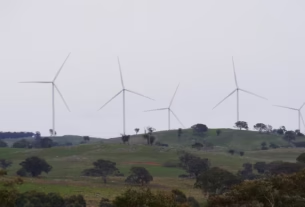In Short : Ford has introduced the “Ford Universal EV Production System,” a cutting-edge modular EV production method that does away with the conventional assembly line. With this novel approach, EVs are constructed in three fully assembled modules: the front, center, and rear. These modules are then combined at the end of the procedure. The outcome was a leaner, more intelligent manufacturing flow, a significant reduction in parts, and an assembly time of about 40% faster. A midsize electric pickup, the first car constructed in this manner, is scheduled to be on sale in 2027 and is expected to start at $30,000.
Forecasts and Market Trends
Reimagining Manufacturing: By using a modular “assembly tree” architecture, Ford hopes to increase efficiency by 40% while reducing the number of parts and fasteners by 20% and 30%, respectively, in comparison to traditional models.
Strategic Platform: As part of the project, a “Ford Universal EV Platform” with structural lithium-iron-phosphate (LFP) batteries integrated into the vehicle floor is being developed, which will increase vehicle design flexibility, safety, and cost effectiveness.
Scaling Value: As part of a larger $5 billion investment that also includes a battery factory in Michigan, Ford is also investing $2 billion to renovate its Louisville, Kentucky plant in order to prioritize the new platform and preserve about 2,200 current employment.
Effect on Industry Strategy and Clean Energy
Cost Competition: Ford’s modular system is a direct answer to Chinese manufacturers like BYD, which are setting industry standards for affordability and volume by putting an emphasis on cost reduction and production flexibility.
Resilient Supply Chains: Ford is better equipped to manage changing tariff environments and reduce geopolitical risks by implementing modular assembly and LFP batteries, which are safer, less expensive alternatives.
Domestic Revitalization: Ford’s dedication to creating a cutting-edge, competitive EV supply chain locally is further demonstrated by the Louisville expansion and investments in battery manufacturing in Michigan.
The Significance of It
A Contemporary Model T Moment: CEO Jim Farley describes this change as Ford’s most revolutionary move since the Model T, transforming not only product design but also manufacturing.
Relevance to Consumers: The impending $30,000 electric pickup combines affordability, functionality, and performance in a single package, meeting changing consumer expectations.
Industry Momentum: If Ford’s modular approach proves effective, it may encourage comparable changes by established manufacturers, changing the standards for EV production around the world and the dynamics of competition.
The bottom line
Ford’s daring move into modular EV production is a calculated reorientation intended to steal market share from low-cost Chinese rivals. In order to achieve profitability, flexibility, and worldwide competitiveness in the era of electric vehicles, the carmaker is regaining its innovative edge through streamlined production processes, unified EV platforms, and coordinated investments.




